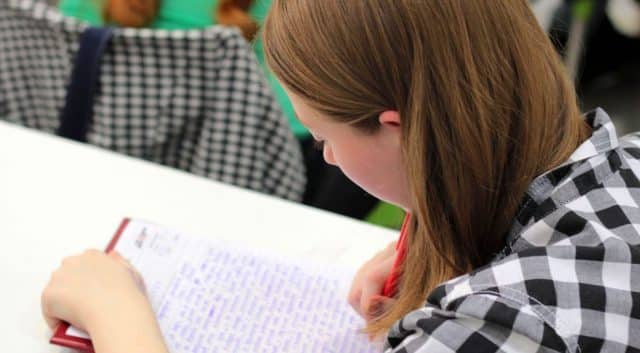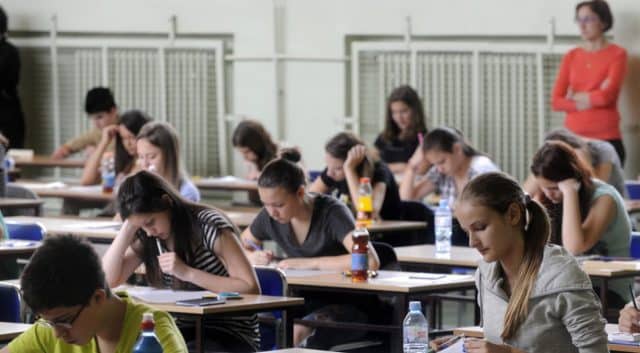Some Autistic students need changes to the way their learning is assessed to enable them to demonstrate their knowledge and understanding. The National Certificate of Educational Achievement (NCEA) is a flexible qualification, and schools have freedom to adapt a student’s learning programme to meet their needs. For example, if a student struggles to perform well in exams due to overwhelming anxiety, the school may choose to increase the number of internal assessments the student undertakes to reduce the pressure on exams.
In some cases, students will need specific accommodations when they sit assessments, to ensure that they can fairly demonstrate their knowledge and skills without being disadvantaged compared to other students. These specific accommodations are called Special Assessment Conditions (SAC). This article explains what Special Assessment Conditions are, and how to get them in place for your child.
What are Special Assessment Conditions?
Special Assessment Conditions ensure students are assessed fairly by accounting for a range of physical, emotional, sensory, medical and learning needs.
Some common Special Assessment Conditions are:
- Extra time
- Assistance from a reader / writer
- Sitting the assessment in a separate room
You can find a full list of available Special Assessment Conditions on the NZQA website.
Autistic students may need Special Assessment Conditions for many reasons. For example, a student who finds the sensory environment of a large exam room overwhelming, with its ticking clocks, scratching pens and bright lights, might benefit from sitting the exam in a separate room. A student whose handwriting is difficult to read might need to use a computer or a writer to ensure that the assessor can read their answers. The NZQA website has a table explaining which Special Assessment Conditions may be appropriate for various learning needs. Special Assessment Conditions are available for a range of learning needs, so your child’s school will determine which Special Assessment Conditions are most appropriate.
When can Special Assessment Conditions be used?
Special Assessment Conditions can be used in both intern
al and external assessments. If a student has Special Assessment Conditions in place, these should always be available to the student unless there is a clear reason why the Special Assessment Conditions should not be used for a particular assessment. For example, if a student is learning te reo Māori as a second language and is being assessed on their ability to independently read text in te reo Māori, it would not be appropriate for the student to have support from a reader in that assessment.
The specific Special Assessment Conditions a student uses may differ from assessment to assessment. For example, a student may have access to a writer as one of their Special Assessment Conditions. However, a writer may not be particularly helpful in a maths assessment because it can be difficult for the student to explain to the writer how an equation should be written. The student may instead choose to use extra time or assistive technology for their maths assessments.
Your child’s teachers should work with them to decide what Special Assessment Conditions they want to use for each assessment task.
How do I get Special Assessment Conditions in place for my child?
It is a good idea to start thinking about Special Assessment Conditions early. In Years 9 and 10, your school should start building a profile of your child’s learning support needs so that they know what Special Assessment Conditions they might need in their NCEA years. Your child should also get the chance to experiment with using different Special Assessment Conditions before they reach NCEA level, so that they can make an informed decision about which Special Assessment Conditions work best for them.
Different schools will have different processes in place for determining the need for Special Assessment Conditions. You can ask your child’s form teacher, Dean, Special Educational Needs Coordinator (SENCO) or learning support coordinator, Guidance Counsellor or the School Nurse about what you need to do to get Special Assessment Conditions in place for your child. Do this as early as possible – ideally as soon as your child starts secondary school. Getting Special Assessment Conditions in place early allows your child to practise using them before they sit any assessments.
As of2024, there are two ways of determining Special Assessment Conditions. For students sitting NCEA Level 2 or 3, the school will have to submit an application to NZQA and NZQA will approve or decline the application. Your school will tell you if they need you to provide any information to support the application.
For students sitting NCEA Level 1, schools have the option of simply notifying NZQA about what Special Assessment Conditions the student will be using. This means it is the school, not NZQA, who approves what Special Assessment Conditions the student can use. However, schools do still have the option of asking NZQA to make the decision about a student’s Special Assessment Conditions if they want to. For example, if you disagree with the decision your school has made about your child’s Special Assessment Conditions, you can ask them to apply for NZQA to determine what Special Assessment Conditions your child is entitled to.
My child is sitting the new NCEA Literacy and Numeracy co-requisite this year. Do they need to have Special Assessment Conditions?
Beginning in 2024, students need to achieve 10 literacy credits and 10 numeracy credits to be awarded any level of NCEA. This is known as ‘the NCEA co-requisite’.
In 2024 and 2025, students will have two pathways to achieving these credits: they can either sit a set of dedicated literacy and numeracy assessments, or they might achieve their literacy and numeracy credits by passing specified NCEA achievement standards from a range of learning areas.
From 2026, all students will have to pass the dedicated literacy and numeracy assessments to achieve the co-requisite. You can read more about the co-requisite here.
Schools can determine what Special Assessment Conditions a student may use when they are sitting the co-requisites – an application to NZQA is not required. If a student already has Special Assessment Conditions in place for other assessments, these need to be available to them during their literacy and numeracy assessments as well. In particular, if a student has a reader for other assessments then a reader must be made available for the reading assessment. As with all Special Assessment Conditions, the key is that a student must not be disadvantaged compared to other students.
However, the literacy and numeracy assessments have been designed to be as accessible as possible, so your child may not need Special Assessment Conditions to be able to participate in these assessments on an equitable basis with others. For example:
- The assessments are designed to be sat when your child is ready; if they do not yet have the skills where they can reasonably be expected to pass the assessment, they should not be sitting the assessment yet. You can ask your school what evidence they have showing that your child is ready to sit the assessment if they have been entered to sit the assessment and you think they are not ready yet.
- There are no time limits for the literacy and numeracy assessments, although they do have to be completed within a single session (so, for example, a student couldn’t start the assessment, go and have lunch, and then return to complete the assessment).
- The English Writing and Numeracy assessments have a built-in text-to-speech feature called Polly. All students can choose to use this feature if they want to, so students sitting these assessments would only need to have assistance from a reader if they cannot use Polly for some reason. Polly is not available for the English Reading, Te Reo Matatini or Pāngarau assessments, so if students sitting these assessments need assistance from a reader, they will need to arrange this with their school.
Where can I go for further information?
If you have questions or concerns about your child’s learning support needs, including access to Special Assessment Conditions, you should contact your school. Do this as early as possible – either when they start secondary school, or as soon as you become aware that they might need to use Special Assessment Conditions during their NCEA years. This gives your school plenty of time to get the appropriate Special Assessment Conditions in place.
Further information about Special Assessment Conditions can be found here:
- Information about Special Assessment Conditions on the NZQA website
- Ministry of Education information sheet about Special Assessment Conditions for students and whānau
- Information about Special Assessment Conditions for the literacy and numeracy co-requisites
- Request personalised information about Autism from Altogether Autism




